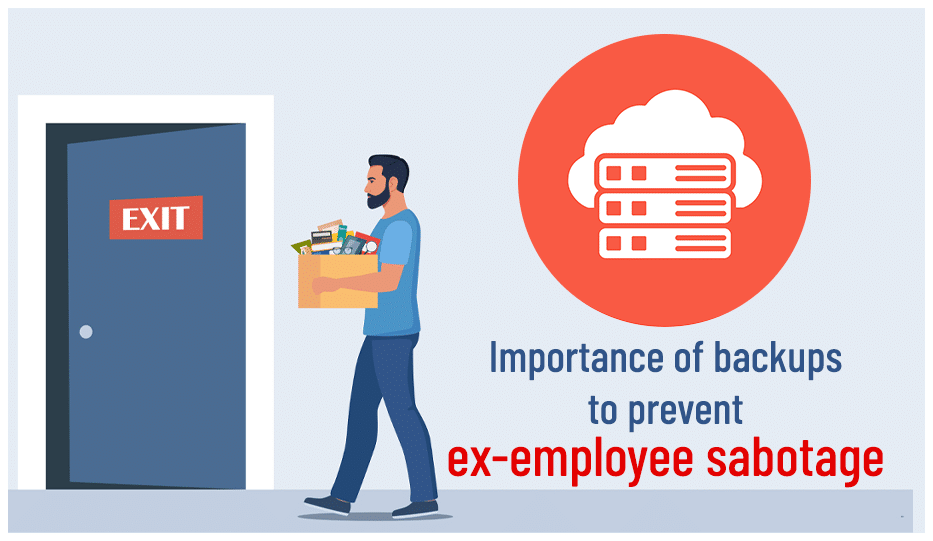
As recent events have shown, even the most robust systems can be vulnerable to internal threats, particularly from unhappy former employees. The recent case of Kandula Nagaraju, a 39-year-old former employee of NCS who deleted 180 virtual servers after being terminated, underscores the critical importance of maintaining comprehensive and up-to-date backups.
The Incident: A Cautionary Tale
Kandula Nagaraju, feeling confused and upset after being fired from his position at NCS, accessed the company’s computer test systems unauthorizedly and deleted 180 virtual servers. This act of sabotage resulted in a staggering financial loss of S$918,000 (approx. 5.66 crore INR) for the company. Nagaraju, who believed he had performed well during his tenure, was terminated due to poor work performance and returned to India without securing another job in Singapore.
Despite the termination of his contract, Nagaraju still had access to the system and used his administrator login credentials to log in from his laptop multiple times between January and March 2023. His actions, motivated by a sense of injustice, culminated in the deletion of critical virtual servers, severely disrupting NCS’s operations.
The Aftermath: Financial and Operational Impact
The deletion of 180 virtual servers crippled NCS’s quality assurance (QA) computer system, used for testing new software and programs before launch. The company’s team quickly realized the gravity of the situation when they found the system inaccessible and their troubleshooting efforts futile. An internal investigation revealed that the servers had been deliberately deleted, leading to a police report and subsequent seizure of Nagaraju’s laptop, which contained the malicious script he used.
The Importance of Data Backups
This incident highlights a vital lesson for businesses of all sizes: the importance of maintaining regular and secure backups of all critical data and systems. Here’s why backups are essential:
- Mitigation of Data Loss: In the event of unauthorized deletions or other malicious activities, having up-to-date backups ensures that you can quickly restore lost data, minimizing downtime and operational disruption.
- Protection Against Internal Threats: Employees, especially those with high-level access, can pose a significant risk if they become disgruntled. Regular backups provide a safety net against potential sabotage.
- Business Continuity: Backups are a cornerstone of any business continuity plan. They ensure that your business can recover swiftly from IT disasters, whether caused by internal actors, cyberattacks, or natural calamities.
- Peace of Mind: Knowing that you have secure backups allows you to operate with confidence, knowing that you are prepared for unexpected events.
Implementing an Effective Backup Strategy
To safeguard your business against similar threats, consider the following best practices for an effective backup strategy:
- Regular Backups: Schedule automatic backups at regular intervals to ensure that your data is always up-to-date.
- Offsite Storage: Store backups in a secure, offsite location to protect against physical damage to your primary systems.
- Access Controls: Implement strict access controls to limit who can access and modify your backups.
- Regular Testing: Regularly test your backup and recovery processes to ensure they work as expected and that you can restore data quickly when needed.
- Employee Offboarding: Immediately revoke access to all systems and data upon an employee’s departure to prevent unauthorized access.
Acronis Cyber Protect Cloud offers an unparalleled data backup solution designed to keep your mail collaboration and server environments secure, even against the potential risks posed by ex-employees. With its advanced protection and comprehensive security measures, Acronis Cyber Protect Cloud ensures that your critical data remains intact and accessible.
Conclusion
The case of Kandula Nagaraju serves as a stark reminder of the potential threats posed by former employees with lingering access to critical systems. By prioritizing and investing in a robust backup strategy, businesses can protect themselves against such risks, ensuring continuity and resilience in the face of internal and external threats. In the digital age, data backups are not just a technical necessity but a critical component of your overall business strategy. Don’t wait for a costly lesson—start securing your data today.